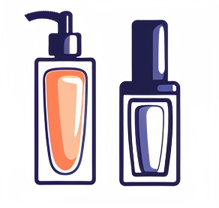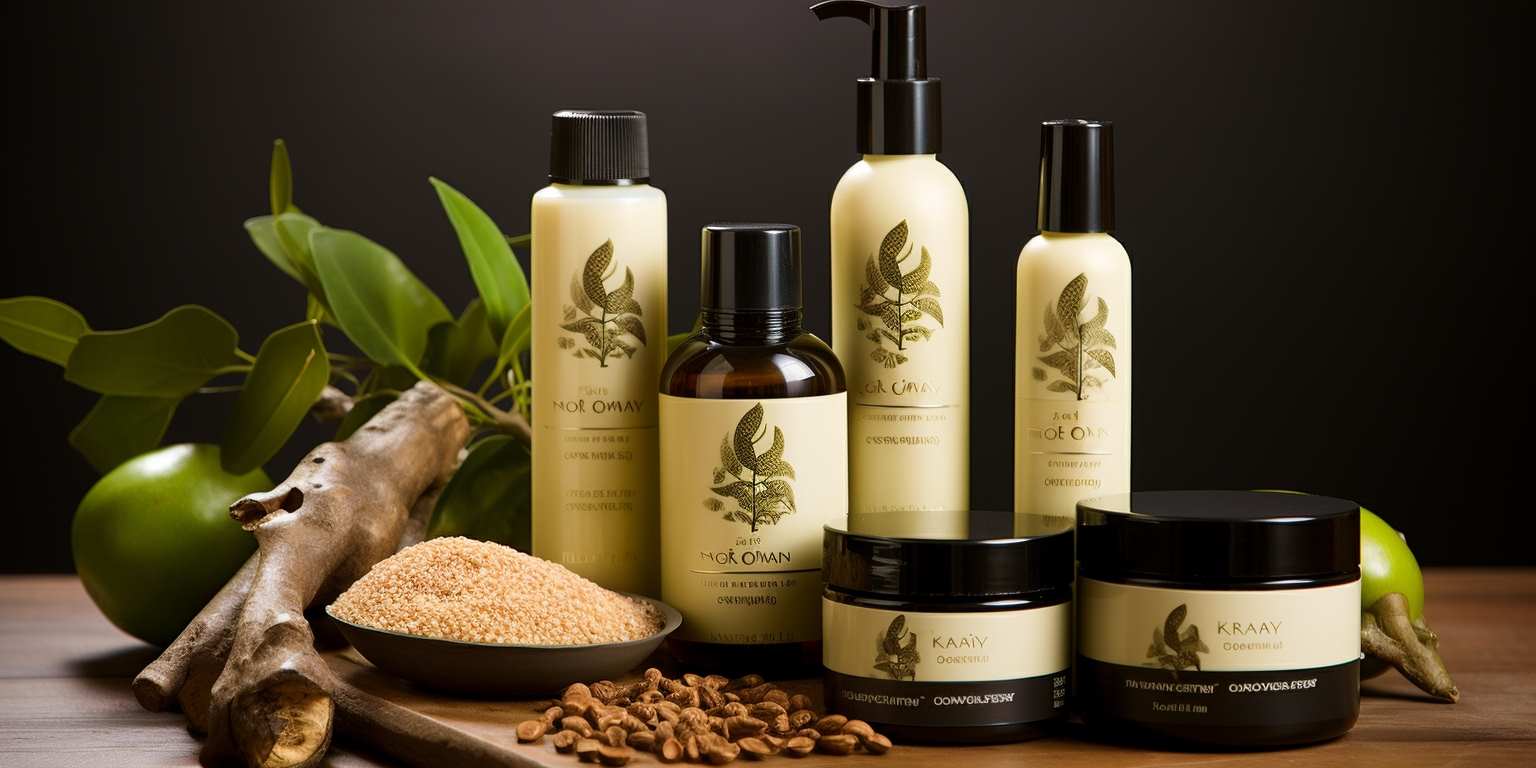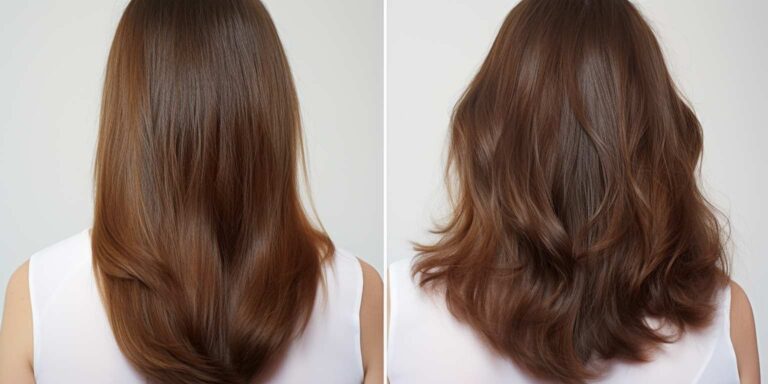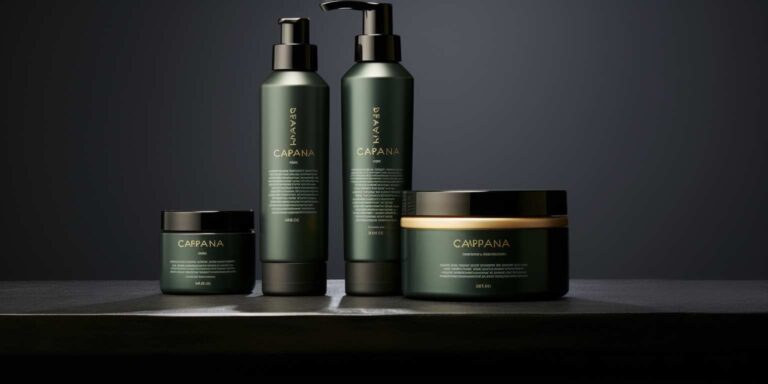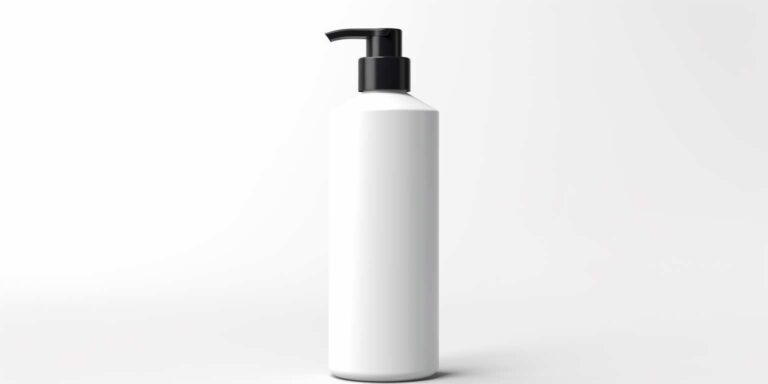Natural shampoo solutions for oily hair
If you’re grappling with the persistent issue of oily hair, conventional shampoos laden with harsh chemicals might exacerbate the problem rather than solve it. The solution lies in turning to nature’s bounty for gentle yet effective cleansing. Here’s a guide to some natural shampoo solutions tailored specifically for oily hair.
1. Tea Tree Oil Shampoo: Tea tree oil is renowned for its antifungal and antibacterial properties, making it an ideal ingredient to combat excess oiliness. Look for shampoos containing tea tree oil as a primary component. It effectively cleanses the scalp, regulates sebum production, and leaves your hair feeling refreshed.
2. Lemon and Aloe Vera Shampoo: Lemon is a natural astringent that helps to clarify the scalp and control oil production. When combined with soothing aloe vera, it creates a balancing shampoo that removes excess oil without stripping away natural moisture. This combination also promotes scalp health and prevents dandruff.
3. Apple Cider Vinegar Shampoo: Apple cider vinegar (ACV) is a centuries-old remedy for various hair issues, including oily scalp. Its acidic nature helps to restore the scalp’s pH balance, regulate oil production, and remove buildup from hair follicles. Opt for a shampoo infused with ACV for a gentle yet effective cleanse.
4. Rosemary and Mint Shampoo: Rosemary and mint are invigorating herbs that stimulate blood circulation in the scalp, promoting healthy hair growth and regulating sebum production. A shampoo enriched with these botanicals not only cleanses thoroughly but also imparts a refreshing sensation, perfect for oily scalps.
5. Clay-Based Shampoo: Clay-based shampoos are excellent for absorbing excess oil and impurities from the scalp without stripping away natural oils. Look for formulas containing bentonite clay or kaolin clay, which effectively cleanse and detoxify the scalp while leaving the hair soft and manageable.
| Shampoo Type | Main Ingredients | Benefits |
|---|---|---|
| Tea Tree Oil Shampoo | Tea Tree Oil | Regulates sebum production, combats fungal infections |
| Lemon and Aloe Vera Shampoo | Lemon, Aloe Vera | Clarifies scalp, balances oil production, prevents dandruff |
| Apple Cider Vinegar Shampoo | Apple Cider Vinegar | Restores pH balance, removes buildup, regulates oil |
| Rosemary and Mint Shampoo | Rosemary, Mint | Stimulates circulation, promotes healthy hair growth |
| Clay-Based Shampoo | Bentonite Clay, Kaolin Clay | Absorbs excess oil, detoxifies scalp, leaves hair manageable |
Why natural shampoo is better for oily hair
When it comes to managing oily hair, the choice of shampoo plays a pivotal role in maintaining balance and achieving the desired results. Natural shampoo emerges as a superior option for individuals grappling with excess oil production on their scalp. Let’s delve into why natural shampoo reigns supreme in tackling oily hair.
First and foremost, natural shampoos contain gentle ingredients that effectively cleanse the scalp without stripping away essential oils. Unlike their chemical-laden counterparts, natural shampoos utilize mild surfactants derived from plants such as coconut or palm kernel oil. These gentle cleansers remove excess oil and impurities without causing irritation or triggering an overproduction of sebum.
Moreover, natural shampoos are free from harsh chemicals like sulfates, parabens, and silicones, which can exacerbate oily hair woes. Sulfates, commonly found in conventional shampoos, are notorious for their stripping effect, which prompts the scalp to compensate by producing more oil. By opting for natural formulations, individuals can avoid this vicious cycle and maintain a healthier balance of oil production.
Another compelling reason to choose natural shampoo for oily hair lies in its balancing properties. Many natural ingredients such as tea tree oil, witch hazel, and citrus extracts possess astringent and antibacterial properties that help regulate sebum production and combat scalp issues like dandruff and itchiness.
Furthermore, natural shampoos often incorporate essential oils known for their purifying and clarifying abilities. Ingredients like rosemary, peppermint, and lemongrass not only refresh the scalp but also stimulate circulation, promoting healthier hair growth.
It’s worth noting that natural shampoos prioritize sustainability and eco-friendliness, utilizing biodegradable ingredients and minimal packaging. By making an environmentally conscious choice, consumers not only support their own hair health but also contribute to the well-being of the planet.
Top ingredients to look for in natural shampoos for oily hair
In the quest for managing oily hair, turning to natural shampoos can be a game-changer. These formulations harness the power of plant-based ingredients to cleanse and balance the scalp without harsh chemicals. When shopping for natural shampoos tailored to combat excess oil, keep an eye out for specific key ingredients that can work wonders.
Tea Tree Oil: Renowned for its antibacterial and antifungal properties, tea tree oil is a potent ingredient to look for. It helps to cleanse the scalp of excess oil and impurities while soothing irritation and preventing dandruff.
Peppermint: With its refreshing scent and cooling sensation, peppermint is more than just a delightful aroma. It possesses astringent properties that can help to control sebum production on the scalp, leaving hair feeling clean and refreshed.
Lemon: Citrus extracts like lemon are effective degreasers that can cut through oil and buildup without stripping the scalp of its natural oils entirely. Lemon also has antimicrobial properties, making it beneficial for maintaining scalp health.
Aloe Vera: Known for its hydrating and soothing properties, aloe vera is a staple in many natural hair care products. It helps to balance oil production while providing hydration to the scalp, promoting healthy hair growth.
Apple Cider Vinegar: This kitchen staple doubles as a potent hair care ingredient. Apple cider vinegar helps to clarify the scalp by removing buildup and regulating pH levels, which can help to control excess oil production.
Clay: Clay-based shampoos are excellent for oily hair as they absorb excess oil and impurities from the scalp. Look for clays like kaolin or bentonite, which are gentle yet effective in purifying the scalp.
| Key Ingredient | Benefits |
|---|---|
| Tea Tree Oil | Antibacterial, antifungal, cleanses scalp, soothes irritation |
| Peppermint | Astringent, controls sebum production, refreshing |
| Lemon | Degreases, antimicrobial, removes buildup |
| Aloe Vera | Hydrating, soothing, balances oil production |
| Apple Cider Vinegar | Clarifies scalp, regulates pH, controls oil production |
| Clay | Absorbs excess oil, purifies scalp |
How to use natural shampoo effectively for oily hair
When it comes to battling oily hair, it’s essential to choose the right shampoo and use it effectively. Natural shampoo can be a game-changer for those dealing with excess oil production. Here’s a guide on how to make the most of it:
Understanding your hair type: Before diving into the world of natural shampoos, it’s crucial to understand your hair type. Oily hair tends to become greasy quickly, often requiring frequent washing. Look for shampoos specifically formulated for oily hair.
Ingredients to look for: Opt for natural shampoos that contain cleansing agents such as tea tree oil, peppermint, or citrus extracts. These ingredients help to remove excess oil without stripping the scalp of its natural oils entirely.
Avoid harsh chemicals: Stay away from shampoos containing sulfates, parabens, and silicones. These chemicals can strip the scalp, causing it to produce even more oil to compensate.
Proper application: When washing oily hair, focus the shampoo on the roots and scalp area where oil tends to accumulate the most. Gently massage the shampoo into the scalp using your fingertips, stimulating circulation and ensuring thorough cleansing.
Rinse thoroughly: Make sure to rinse your hair thoroughly after shampooing. Any leftover residue can weigh down your hair and contribute to oiliness.
Frequency of washing: While it’s tempting to wash oily hair daily, over-washing can strip the scalp of its natural oils, leading to increased oil production. Aim to wash your hair every other day or every two days to maintain a balance.
Consider a clarifying shampoo: Once a week, incorporate a clarifying shampoo into your routine to deep-cleanse your scalp and remove any buildup of oil, product residue, or pollutants.
Use lukewarm water: Avoid washing your hair with hot water, as it can stimulate the sebaceous glands, leading to more oil production. Instead, opt for lukewarm water to wash and rinse your hair.
Pat dry gently: After washing your hair, avoid vigorous rubbing with a towel, as this can rough up the hair cuticle and stimulate oil production. Instead, gently pat your hair dry to remove excess water.
Follow with a lightweight conditioner: While oily hair doesn’t typically need much conditioning, you can use a lightweight conditioner on the ends of your hair to keep them moisturized without weighing them down.
Experiment and adjust: Finding the perfect natural shampoo and routine for your oily hair may require some experimentation. Pay attention to how your hair responds to different products and adjust your routine accordingly.
Real results: before and after using natural shampoo on oily hair
When it comes to battling oily hair, finding the right shampoo can make all the difference. Many individuals with oily hair have turned to natural shampoo as a solution. But does it really work? Let’s delve into the real results: before and after using natural shampoo on oily hair.
Before switching to natural shampoo, individuals often experience a slew of frustrations. Oily hair can feel heavy, greasy, and downright unmanageable. Traditional shampoos, laden with harsh chemicals, may strip the scalp of natural oils, prompting it to produce even more oil to compensate.
Natural shampoo, on the other hand, offers a gentler approach. Formulated with plant-based ingredients and free from sulfates and parabens, natural shampoos aim to cleanse the hair without harsh chemicals. Advocates claim that this approach can help rebalance the scalp’s oil production.
But what do the results say? Many individuals report a noticeable improvement in their hair’s condition after making the switch. Oiliness decreases, leaving hair feeling lighter and fresher for longer periods between washes.
One user, Sarah, shares her experience: “Before using natural shampoo, my hair would become oily within a day of washing. It felt like a constant battle. After switching, I noticed a significant reduction in oiliness. My hair feels cleaner and looks healthier overall.”
It’s not just about combating oiliness—natural shampoo can also improve the overall health of the hair and scalp. With ingredients like coconut oil and aloe vera, these shampoos nourish the hair, leaving it softer, shinier, and more manageable.
But as with any hair care product, results can vary from person to person. Some individuals may experience an adjustment period as their scalp adapts to the gentler cleansing agents. Additionally, the effectiveness of natural shampoo may depend on factors such as hair type, water quality, and styling habits.
Making the switch: transitioning to natural shampoo for oily hair
Transitioning to natural shampoo for oily hair can be a game-changer for those battling with excess sebum production. Traditional shampoos often strip the scalp of its natural oils, prompting it to overcompensate by producing even more oil, leading to a vicious cycle of greasy hair.
Natural shampoos, on the other hand, are formulated with gentle, plant-based ingredients that cleanse the hair and scalp without harsh chemicals. Look for products containing tea tree oil, witch hazel, or clay, which are known for their ability to regulate oil production and purify the scalp.
When making the switch, it’s essential to transition gradually to allow your scalp to adjust. Start by incorporating the natural shampoo into your routine once or twice a week, gradually increasing frequency as your scalp adapts.
One of the key benefits of natural shampoo for oily hair is its ability to balance the scalp’s pH levels. Traditional shampoos often disrupt the natural pH balance, leading to an overproduction of oil. Natural shampoos help restore this balance, resulting in healthier, less oily hair over time.
Additionally, avoid products containing sulfates and silicones when transitioning to natural shampoo. Sulfates can strip the hair of its natural oils, while silicones can create a barrier that traps oil and debris on the scalp.
Regular scalp massages can also aid in the transition process. Massaging the scalp stimulates blood flow and helps distribute natural oils, promoting overall scalp health and reducing oiliness.
It’s important to note that results may vary depending on individual hair types and conditions. Some may experience an immediate improvement in oiliness, while others may require more time for their scalp to adjust.
Diy natural shampoo recipes for oily hair
If you’re grappling with oily hair and want to break free from commercial shampoos laden with harsh chemicals, DIY natural shampoo recipes could be your savior. These recipes not only combat excess oil but also nurture your hair with the goodness of nature.
Firstly, let’s explore a simple yet effective recipe using apple cider vinegar and tea tree oil. Mix 1 tablespoon of apple cider vinegar with 3-4 drops of tea tree oil. Dilute the mixture with 1 cup of water and use it as a final rinse after your regular shampoo. The acidity of apple cider vinegar helps to balance your scalp’s pH, while tea tree oil’s antibacterial properties combat excessive oil production.
For a gentle cleansing option, try a baking soda shampoo. Mix 1 tablespoon of baking soda with 1 cup of water. Apply the mixture to your wet hair, massaging it into your scalp. Rinse thoroughly. Baking soda’s alkaline nature helps cut through excess oil without stripping your hair of its natural oils. Remember not to use this too frequently, as it can be drying.
If you prefer a more aromatic experience, consider a rosemary and mint shampoo. Infuse a handful of rosemary leaves and mint leaves in 2 cups of hot water for about 30 minutes. Strain the liquid and let it cool. This concoction not only smells heavenly but also harnesses the astringent properties of rosemary to regulate oil production.
For those who lean towards a tropical vibe, a coconut milk and aloe vera shampoo might be the answer. Mix 1/2 cup of coconut milk with 2 tablespoons of aloe vera gel. The antifungal properties of coconut milk coupled with aloe vera’s soothing effect make this a nourishing option for oily hair.
If your scalp needs an exfoliating boost, a coffee grounds shampoo could be intriguing. Combine 2 tablespoons of coffee grounds with your regular shampoo. The gritty texture of coffee grounds helps to exfoliate the scalp, removing excess oil and product buildup.
Finally, let’s not forget the magic of essential oils. Incorporate a few drops of lavender, lemon, or peppermint essential oil into your DIY shampoo concoctions. These oils not only add a delightful fragrance but also offer various benefits like calming the scalp and controlling oil secretion.
